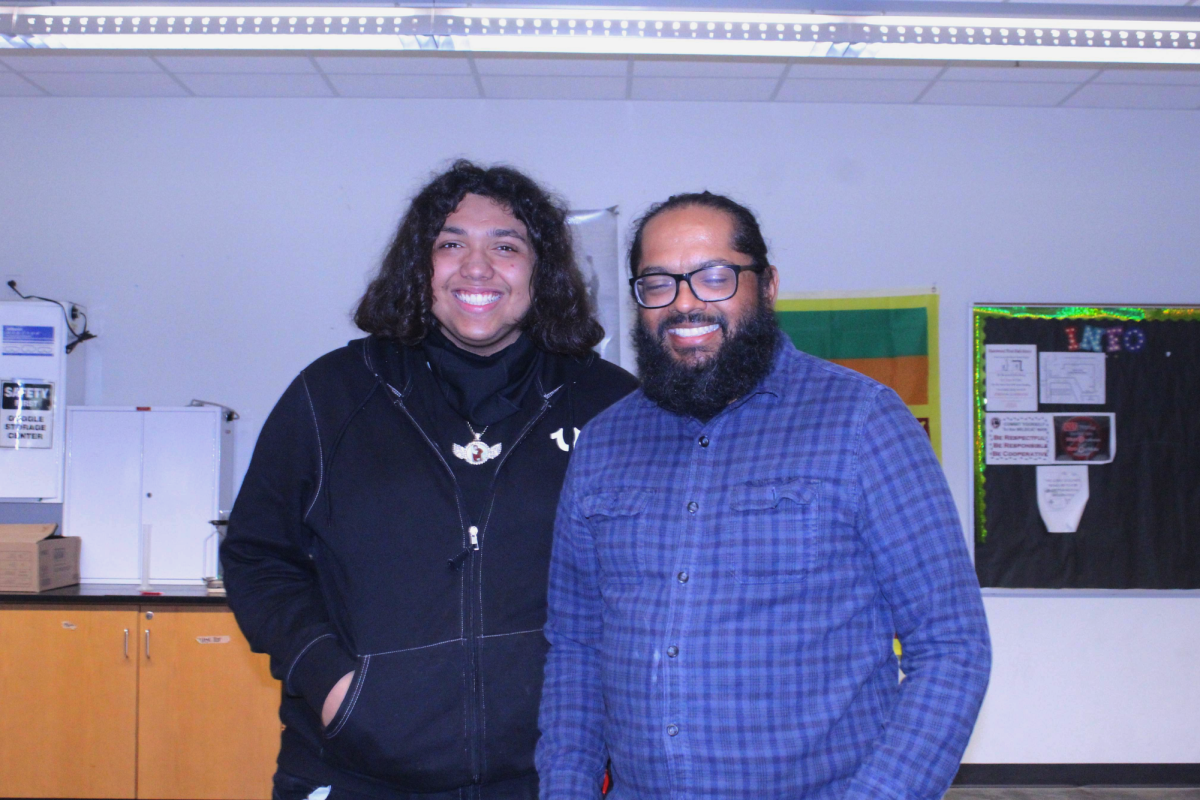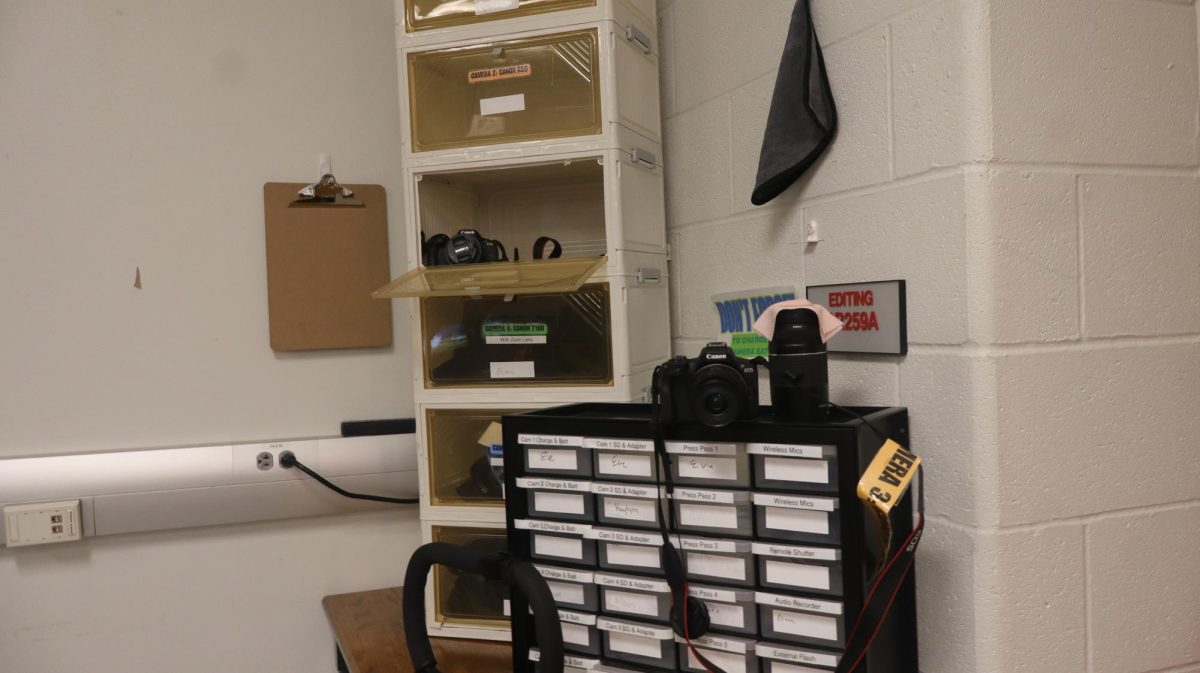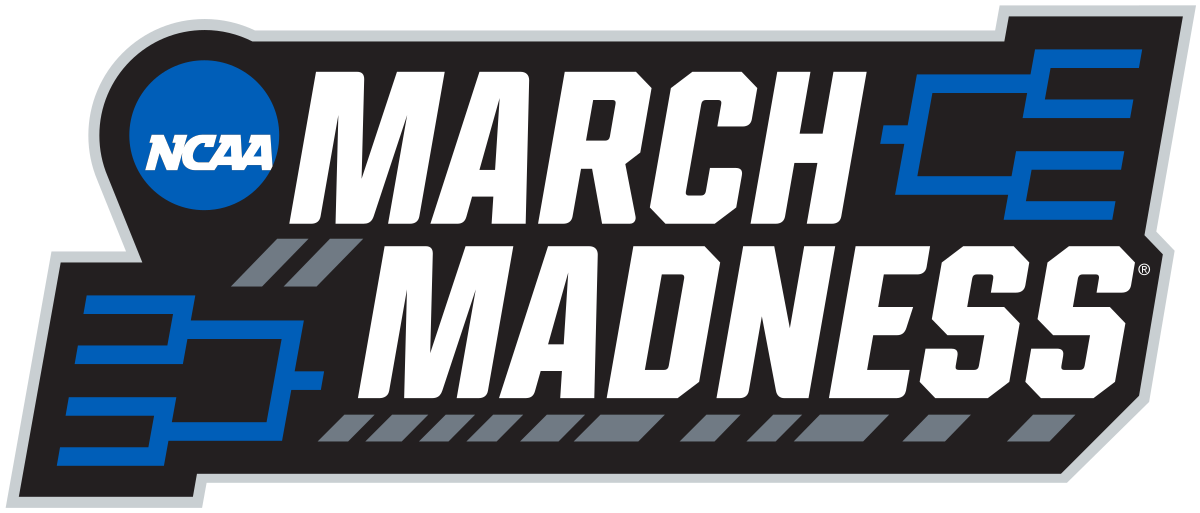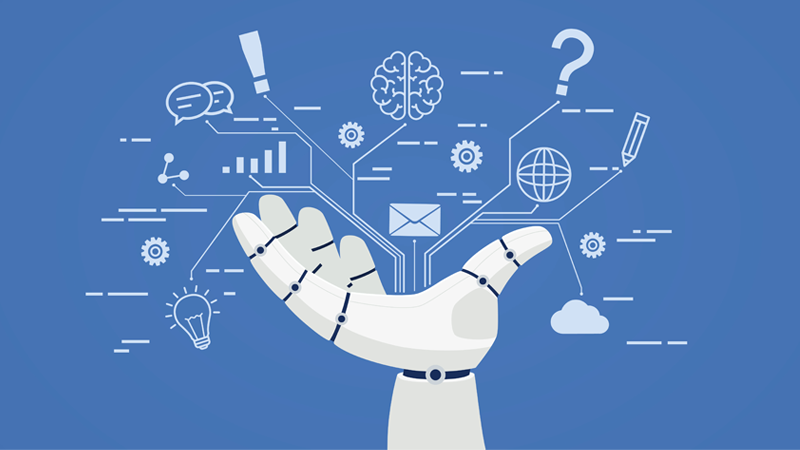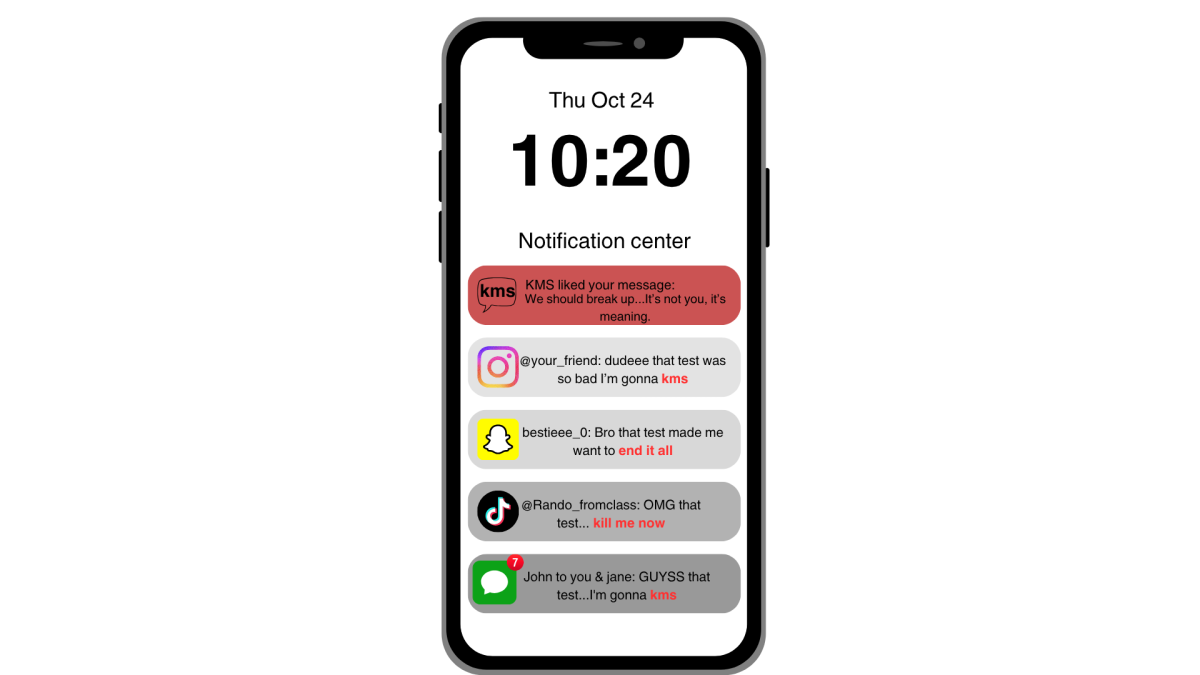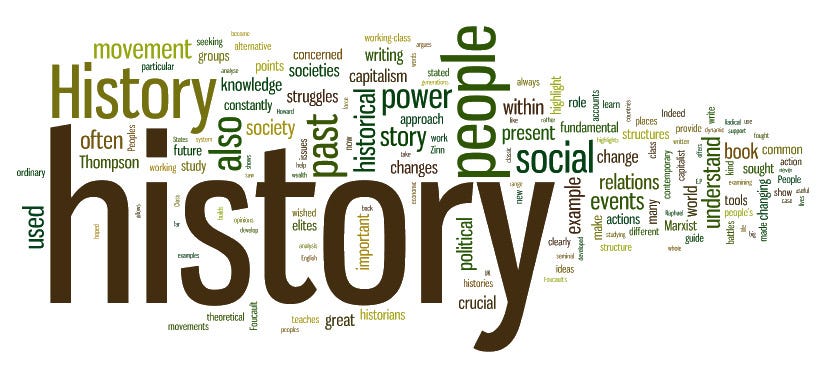There has been a rise in artificial intelligence (AI), which has caused a lot of debates about its capabilities/comparability to humans. AI can quickly generate things like essays/ pictures, but human writers offer creativity and emotional depth. There are strengths and limitations of both AI and human-generated content. The best approach for a variety of tasks can be AI. The most significant difference is that most of the time, humans will always bring a more approachable and relatable feeling when it comes to writing.
AI excels in producing large amounts of content with a consistent tone and style. It can generate articles and essays quickly on a wide range of topics. AI uses various algorithms to find the best way to write articles and the best way to find topic information. However, AI-generated content is often missing the originality and emotional aspects that characterize a real human way of writing. Additionally, AI relies on information that already exists on the internet and might struggle to produce original content.
SIMILARITIES/Differences:
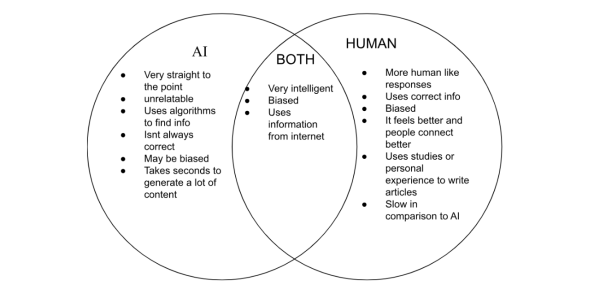
There are many ethical considerations surrounding AI content that also draw attention. AI has been proven to find information based on biases that’s in its training data which leads to unfair or discriminatory results. Human writers on the other hand can apply ethical judgment and awareness of social context to create a fair opinion/information. This ensures fairness and accuracy when it comes to creating articles and is purely based on facts and human-like thoughts. The majority of the time humans will always bring a more approachable and relatable feeling when it comes to writing. Transparency in AI content requires a lot of evaluation because sometimes AI will get things wrong and mislead the user. Human involvement is essential when using AI because without fact-checking information there’s no telling what’s correct and or misleading.
AI and humans can be viewed as complementary forces rather than competitors. AI excels in speed and analysis, while human intelligence brings creativity, intuition and ethical judgment. In medicine, AI can assist in diagnosing diseases based on symptoms, but human doctors provide ethical/empathetic care. Effective human-AI interaction relies on compatibility between humans and technology to effectively associate and correlate with one another.

